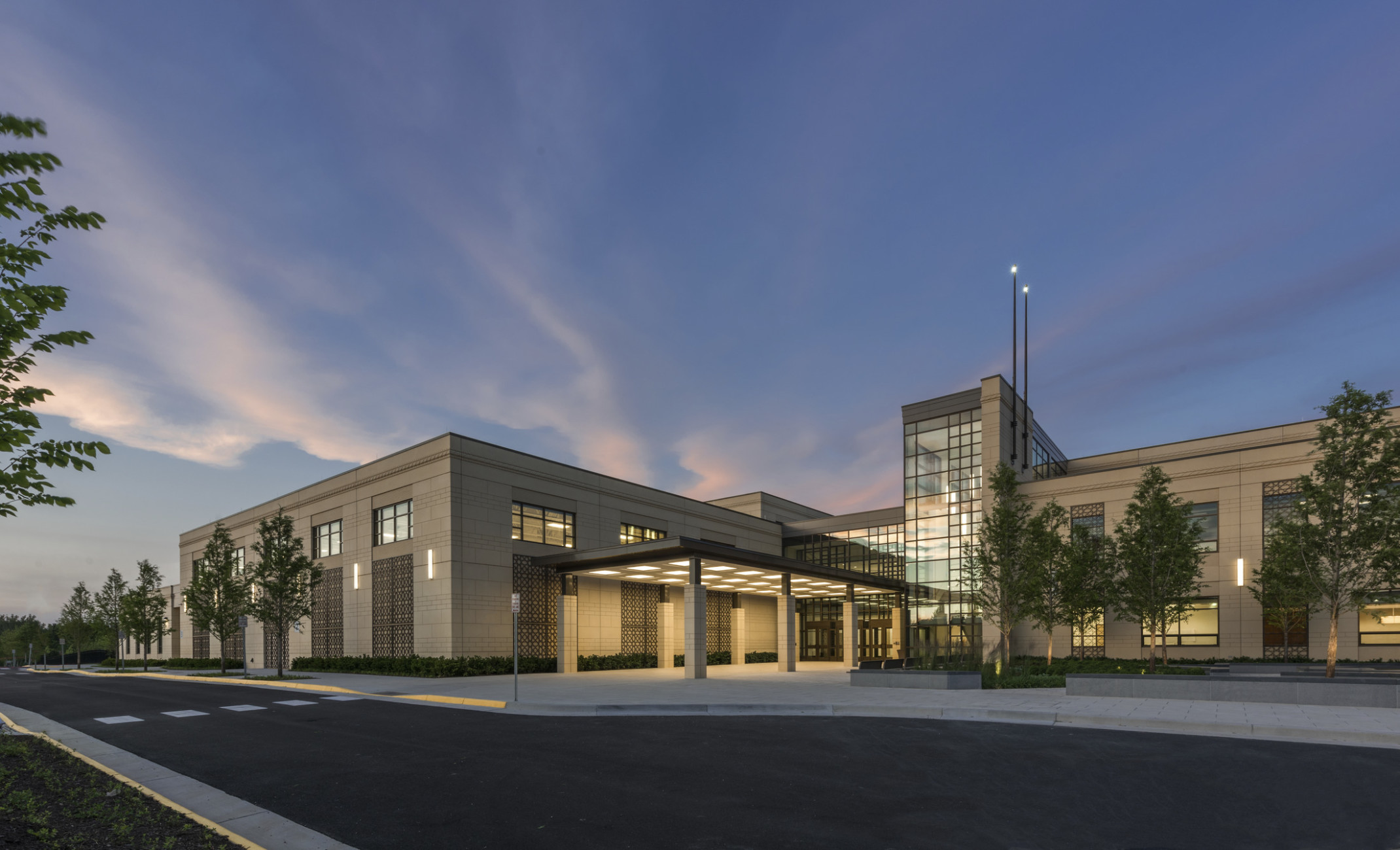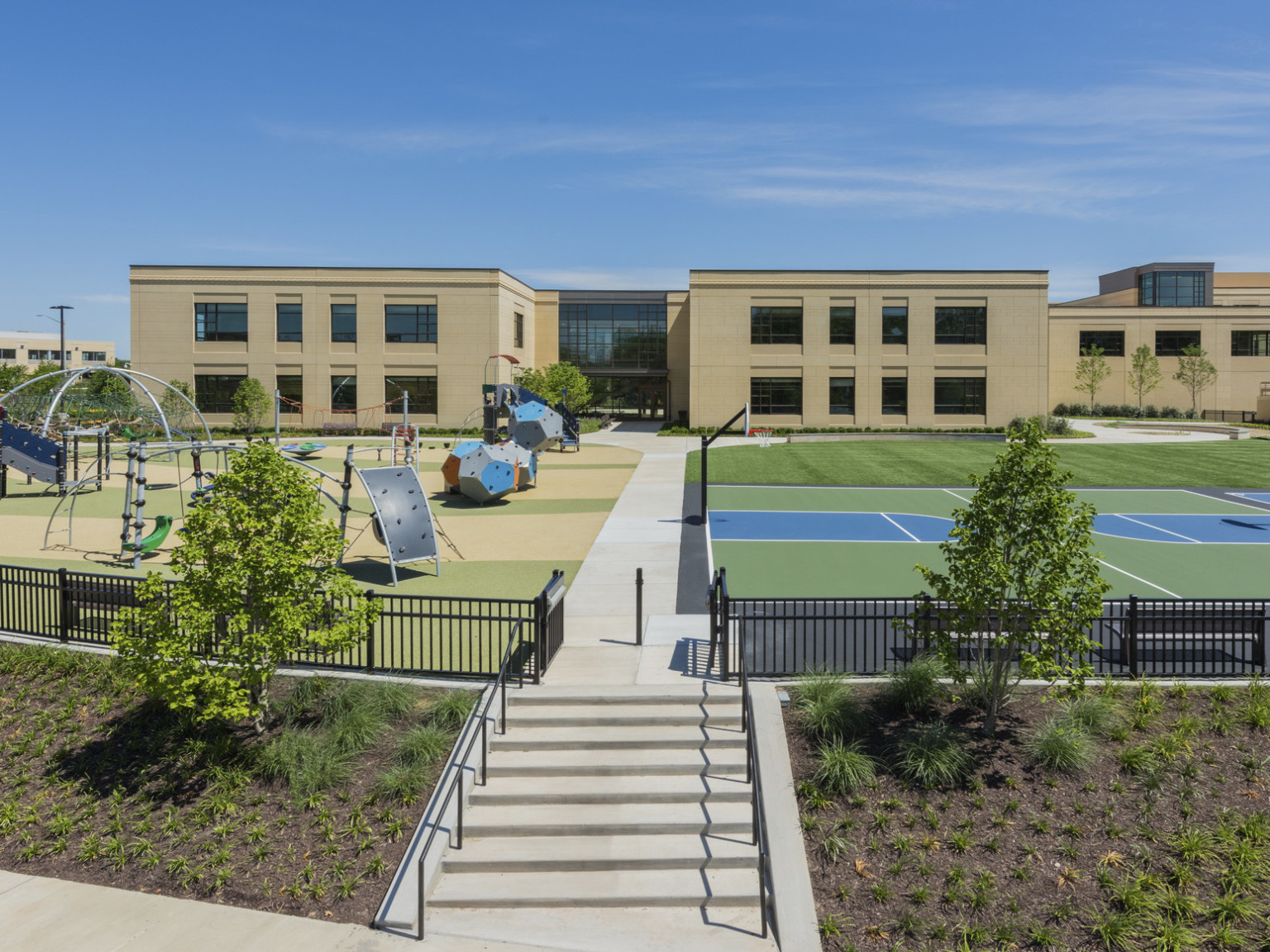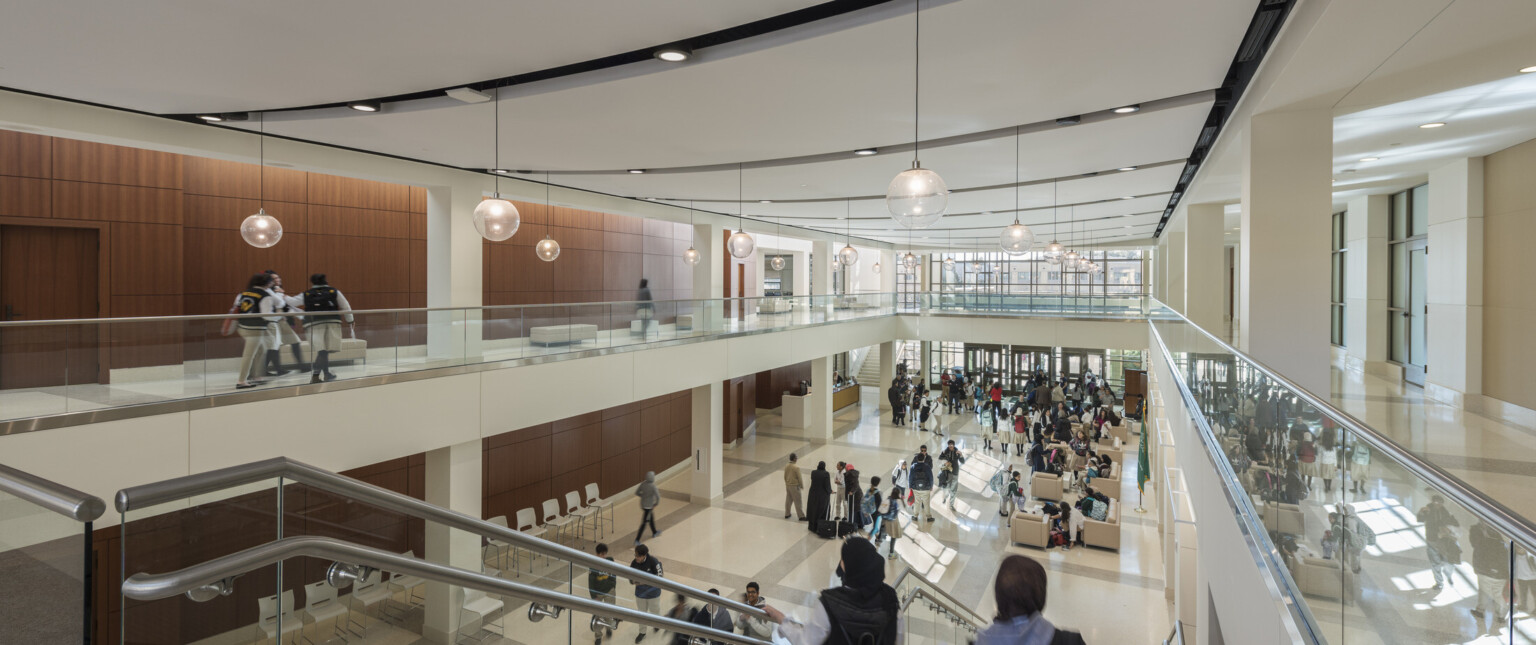King Abdullah Academy - A Look Back
Table of Contents
- King Abdullah Academy - A Place of Learning and Different Cultures
- What Made King Abdullah Academy Special?
- What Happened to the King Abdullah Academy Site?
- What Does it Mean to be an International Baccalaureate School?
- The People Behind King Abdullah Academy - Who Supported the School?
- How Did the Community Feel About King Abdullah Academy?
- Where Was King Abdullah Academy Located?
- What's Next for the IB Community, Even Without King Abdullah Academy?
For many, the mention of King Abdullah Academy brings to mind a special kind of school, a place where young people from all sorts of backgrounds came together to learn. It was, in a way, a hub for different cultures, a spot in Floris, Virginia, where an international approach to schooling truly took root. This private institution, with its ties to Saudi Arabia, offered a unique learning path, a program known the world over for encouraging students to think deeply and to connect with others, no matter where they came from. It was a community that, you know, really valued a wide range of experiences and ideas, all supported by folks who knew a lot about teaching and helping young minds grow.
This school, as a matter of fact, wasn't just any school; it was an International Baccalaureate World School. That means it followed a particular way of teaching that aims to help students become well-rounded individuals, ready for whatever life throws at them. It brought together a truly diverse group of students, youngsters from many different countries and walks of life, all sharing classrooms and learning experiences. This mix of nationalities and outlooks, you see, created a pretty rich environment, a place where kids could learn not just from books, but from each other's stories and perspectives too, which is kind of important for growing up in our big, interconnected world.
The spirit of the school, with its focus on a global way of looking at things, was something many people held dear. It was, in some respects, a very important part of the local scene in Fairfax County. The staff and teachers there, they were, like, truly dedicated, bringing their knowledge and kindness to help every student find their footing and really succeed. It was a place where, you know, the support system was strong, helping to shape young people who were not just smart, but also kind and thoughtful members of their communities. It was a special kind of school, really, that left a lasting impression on many.
What Made King Abdullah Academy Special?
King Abdullah Academy, or KAA as some called it, had a particular way of doing things that set it apart. It was, for instance, a private school with roots in Saudi Arabia, which gave it a rather distinct flavor compared to many other schools in the area. This connection meant it had a unique background, and it brought a particular kind of cultural richness to its everyday activities. The school was also, you know, an International Baccalaureate World School, which is a pretty big deal in the world of education. This means it followed a specific set of guidelines for teaching and learning that are recognized around the globe, focusing on more than just memorizing facts.
The heart of what made King Abdullah Academy special was, quite simply, its people. It accommodated a truly diverse group of students, a mix of various nationalities all learning together under one roof. This wasn't just about different languages; it was about different customs, different ways of seeing the world, all coming together in the classroom and during playtime. This kind of environment, you know, helps young people develop a wider view of things, a greater appreciation for how different people live and think. It's a bit like having the whole world in one building, which is pretty cool when you think about it.
And then there were the folks who made the learning happen: the experienced faculty and staff. They were, in a way, the backbone of the school, providing the support and guidance that students needed to thrive. These teachers and helpers weren't just showing up for a job; they brought a wealth of knowledge and a genuine desire to see their students do well. Their dedication meant that the kids received a high level of care and instruction, helping them to grow academically and personally. It was, basically, a place where everyone felt looked after, and that really makes a difference in a school environment.
What Happened to the King Abdullah Academy Site?
The story of King Abdullah Academy has a twist, as the school eventually closed its doors. This departure, as a matter of fact, created a new opportunity for the land it once occupied. The academy's leaving opened the door for Fairfax County to do something new with the Mount Vernon site, located at 8333 Richmond Highway. This particular piece of property, you see, was pretty significant, and its availability meant that plans could be made for its future use. It's a common thing for old school sites to get new life, and this was no different, really.
So, what's happening there now? Well, a project began construction last fall to redevelop the Mount Vernon site. This means that where the school once stood, new buildings and new purposes are taking shape. It's a pretty big change for the area, transforming a place of learning into something else entirely. The construction work, which started a while back, shows that the county is actively moving forward with its plans for the space. It's a clear sign that things are always changing, and that even places with a lot of history can get a fresh start.
The idea of redeveloping a site like this, you know, often involves a lot of thought about what the community needs next. When a school moves on, it leaves a space that can be used for housing, businesses, or other public services. In this instance, the county saw a chance to reshape a part of Mount Vernon, giving it a new purpose. It's interesting how one event, like a school leaving, can set off a whole chain of new developments for a community. The old King Abdullah Academy spot is now, in a way, becoming something completely different, reflecting the evolving needs of the area.
What Does it Mean to be an International Baccalaureate School?
Being an International Baccalaureate, or IB, World School means a lot more than just having a fancy name. It means a school has chosen to follow a very specific and well-regarded approach to teaching and learning, one that is recognized by educators all over the globe. This kind of education, you know, isn't just about filling students' heads with facts; it's about helping them become curious, knowledgeable, and caring young people. It encourages them to think for themselves, to ask good questions, and to understand that there's more than one way to see the world, which is, like, super important.
The IB program, which King Abdullah Academy was a part of, tries to help students develop skills that go beyond just academics. It wants them to be good communicators, to be able to work with others, and to understand different cultures. So, it's not just about math and science, but also about becoming a thoughtful and engaged person in the world. This focus on a broader kind of personal growth, you see, is something that many parents and students really appreciate, as it prepares young people for a future that will likely involve working with people from all sorts of backgrounds.
One of the key ideas behind an IB education is something called "international-mindedness." This means helping students to understand and appreciate their own culture, but also to be open and respectful of the cultures of others. It's about seeing the connections between people and places around the world, and realizing that we're all, more or less, in this together. Schools like King Abdullah Academy, by offering this kind of program, were aiming to create students who could thrive in a global society, who could understand different points of view, and who were ready to make a positive difference, which is, basically, a pretty good goal for any school.
The People Behind King Abdullah Academy - Who Supported the School?
A school is, in a way, only as good as the people who make it run, and King Abdullah Academy was no exception. The text mentions the support of an experienced faculty and staff, which is a pretty big deal. These are the individuals who were there day in and day out, guiding students, planning lessons, and making sure everything ran smoothly. Their experience meant they had a deep understanding of how young people learn and grow, and they brought that knowledge to every classroom and every interaction. It's these dedicated professionals, you know, who truly shape the daily experience for students.
The faculty, which refers to the teachers, were the ones directly responsible for delivering the International Baccalaureate curriculum. This isn't an easy job, as the IB program requires teachers to be creative, flexible, and capable of encouraging critical thinking. So, having "experienced" teachers meant that the students were getting instruction from people who knew the IB framework well and could bring it to life in engaging ways. They were, in some respects, the heart of the learning process, making sure that the academic side of King Abdullah Academy was strong and meaningful.
Beyond the teachers, the staff played a vital role too. This could include everyone from administrative assistants to counselors, librarians, and support personnel. These individuals are, basically, the unsung heroes who keep a school operating effectively. They handle all the behind-the-scenes work that allows teachers to teach and students to learn without interruption. The collective effort of both the faculty and staff meant that King Abdullah Academy had a solid team, working together to create a supportive and positive place for its diverse student body. Their combined efforts were, actually, what made the school's environment so welcoming and effective for all its students.
How Did the Community Feel About King Abdullah Academy?
When a school like King Abdullah Academy closes, it often leaves a big impact on the people who were connected to it. The text tells us that a petition was started, asking the school board to reverse its decision to close the academy. This action alone speaks volumes about how the community felt. It wasn't just a building; it was, apparently, a "beloved, highly respected institution." When people go to the trouble of signing a petition, you know, it shows a deep level of care and concern for what's happening.
To call something "beloved" means that it was truly cherished, that it held a special place in the hearts of many. For parents, students, and staff, the school was likely more than just a place of education; it was a community, a second home, a source of friendships and growth. The idea that it was "highly respected" suggests that its educational quality, its values, and its overall contribution to the lives of its students were held in very high regard. This kind of respect, you see, isn't something that just happens; it's earned through consistent effort and positive experiences over time.
The fact that people were actively petitioning to keep the school open, even after the decision was made, highlights the strength of their feelings. It shows that the closure wasn't something that was easily accepted. There was, basically, a strong desire to preserve what they saw as a valuable and important part of their lives and the broader community. This kind of collective action, like your neighbors coming together for a common cause, really gives you a sense of how much King Abdullah Academy meant to those who were part of its story, making its end a rather sad event for many involved.
Where Was King Abdullah Academy Located?
Getting a sense of where a place is located can sometimes help you understand its story a bit better. King Abdullah Academy, often called KAA, was a private school situated in Floris, Virginia. Floris itself is what you might call an unincorporated community. This means it's a recognized area, but it doesn't have its own separate local government like a city or town might. It sits, you know, within the larger area of Fairfax County, Virginia, which is a pretty well-known part of the state, especially for its closeness to Washington D.C.
The specific address provided for the school was 2949 Education Drive, Herndon, VA 20171. While Floris is the community, Herndon is the postal city associated with that address. This is a fairly common setup in areas where postal boundaries don't perfectly line up with community names. So, if you were looking for King Abdullah Academy, that's the address you would have used. The name "Education Drive" itself, in a way, sounds like a fitting street for a school, suggesting a place dedicated to learning and growth, which is kind of nice.
Being located in Fairfax County means the school was part of a rather populated and diverse region. Fairfax County is known for its many different communities, its schools, and its economic activity. Having an international school like King Abdullah Academy in this area likely meant it was accessible to a wide range of families, including those who might have moved to the region for work or other reasons and were looking for a global-focused education for their children. The setting, in some respects, contributed to the school's ability to attract its diverse student body, offering a good place for families to settle down while their kids attended a unique school.
What's Next for the IB Community, Even Without King Abdullah Academy?
Even though King Abdullah Academy is no longer open, the broader International Baccalaureate community keeps going strong. The IB organization is, you know, a very active group that connects schools and educators from all over the globe. They hold events and conferences where people who believe in the IB way of teaching can get together, share ideas, and learn from each other. It's a bit like a big family reunion for people who are passionate about a particular kind of education, which is pretty cool.
One such gathering is the IB Global Conference. The text mentions an upcoming one in The Hague in 2025. This shows that the IB is very much alive and well, and that it continues to bring its community together. These conferences are, basically, places where educators can discuss new ideas, talk about challenges, and celebrate successes in the world of international education. It’s a chance for them to reconnect and get excited about the future of learning, which is, actually, a very important thing for any educational movement.
So, while the closure of a school like King Abdullah Academy might be sad for those who were directly involved, the spirit of international education and the IB philosophy continue to thrive. The conferences, the ongoing development of the curriculum, and the network of schools around the world ensure that the kind of global-minded learning that King Abdullah Academy once offered remains available to students in many other places. The IB is, in a way, always looking forward, welcoming its community to new events and continuing its mission to shape young people who are ready for a complex and interconnected world.

King Abdullah Academy - DLR Group

King Abdullah Academy - DLR Group

King Abdullah Academy - Theater - DLR Group